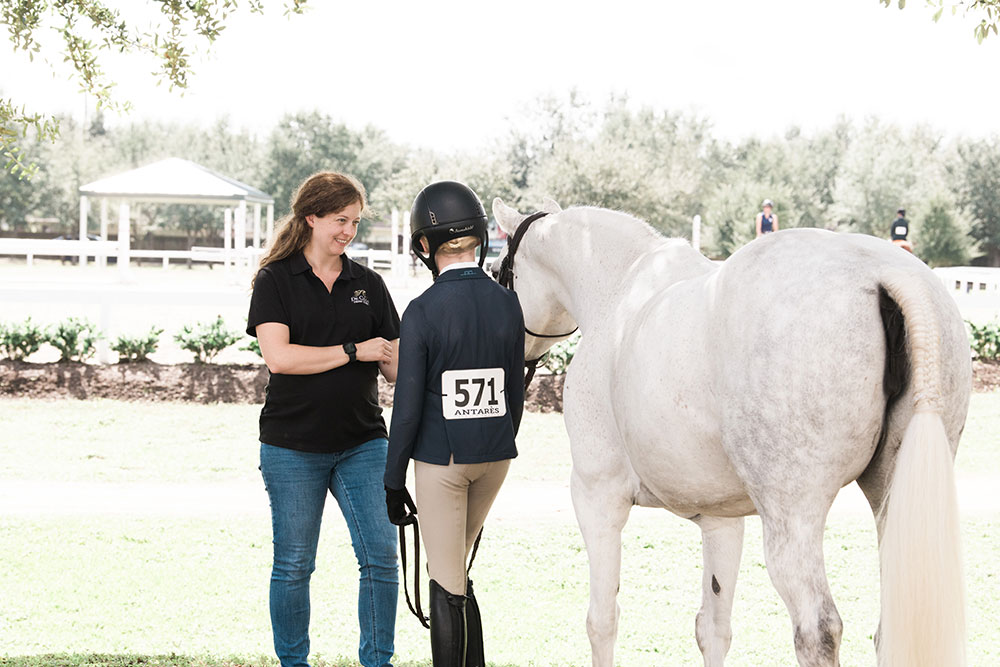Horse Nutrition 101
Horses have a very small stomach capacity compared to their full size: only 2–4 gallons for a 1,000 lb animal! They eat small amounts over long periods of time. Their diets consist of six main nutrients: protein, carbs, fats, vitamins, minerals, and, of course, water. Your horse’s hydration and nutrition are based on the horse’s energy output—a horse that is in competitive sports will require very different needs than a pasture pony that you ride for pleasure.
When determining the best diet for your horse, Dr. De Cillo’s team will first determine what kind of energy output your horse has. “We feed the horses depending on how active their life is,” explains Dr. De Cillo. “If a horse is working at a high-performance level, they really require a huge amount of energy provided from their feed. A horse that you ride on trails doesn’t require as many calories. We will ask a client: What are you going to do with this horse? How often are you going to ride, and for how long? That will give us good information about how much energy a horse needs, and we tailor the nutrition to those needs.”
Forage will provide the ideal energy source for your horse and keep their gut working properly. Fresh forage (pasture) consists of legumes and grasses, and harvested forage (hay) can supplement the diet. An equine athlete will require a more specialized diet when they are competing: good quality hay and alfalfa that is clean, dry (to prevent mold), and has high protein content. If your horse lives in a pasture, they are pretty self-sustaining. Grazing for up to 16 hours a day, they will subsist on the pasture grass with a little bit of help from hay if it gets cold.
If you feed your horse non-commercial cereal grains like oats or corn, they will likely need a mineral supplement. Horses also need the correct the ratio of calcium to phosphorus in their diet (ideally, 2:1 for Ca: P). In addition, you can freely offer access to salt, as horses will regulate their own intake. The vitamin content of a horse’s feed can be determined by the quality of the feed or even your geographical location.
Hydration is probably the most important aspect of a horse’s nutrition—especially for a horse that is out in Texas’s extreme summer heat. But horses are as finicky as we are about their water: keep it clean and cool, change it twice a day, and make sure that they are drinking it. A horse that isn’t consuming enough water can suffer from colic and the effects of dehydration, so if you notice a drop in their water consumption—especially in the heat of summer—call your vet immediately.
